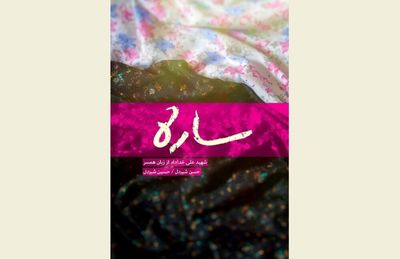The book has a pleasant flow and expression that takes you to the world of hopes, dreams, and sufferings of a martyr's wife. In this book, Sareh Nikkho tells about her childhood years, her school days during the years of revolution and the imposed war, as well as her married life with commander Ali Khodadad.
What sort of book is “Sareh”?
In Mazandaran, we designed plans to commemorate the former fighters, and unlike earlier works that dealt with martyrs' wives as just wives, we developed an idea with "Sareh" no one had attempted before.
We wanted someone to write her own biography and memories, and in fact, "Sareh" is more of the memories of Sareh Nikkho than the memories of her martyred husband.
What feature of Sareh Nikkho stands out in this book?
"Sarah" is about the life and tolerance of a person who has been constantly in the war. The story of Sara Nikkho's resistance and foresight and the plan she had in her life are the most important features of this book.
'Sarah' has only been written about the wife of a martyr and is a biography of this woman only, no reference to her husband is made in the book.
The memories of this book are related to which part of her life?
The book begins with Sareh's childhood, followed by her meeting her husband, having a family, etc. This narrative does not focus on her husband as a central character. As she raises her children, the story continues.
For the book, how long did it take to conduct the interviews?
We had about 37 hours of interviews with Sareh Nikkho and it took a year and a half to finish the book.
What is the most important aspect of this book?
Everything in this work has been based on reality and detailed enough. In order to convey to the audience that "Sareh" is a book written by a Mazandarani, we preserved the native language of Mazandaran and explained the meaning of each word.
For the first time, we included vernacular language in memoir writing and maybe that is the reason why this book got so much attention.
Source:Tehran Times

